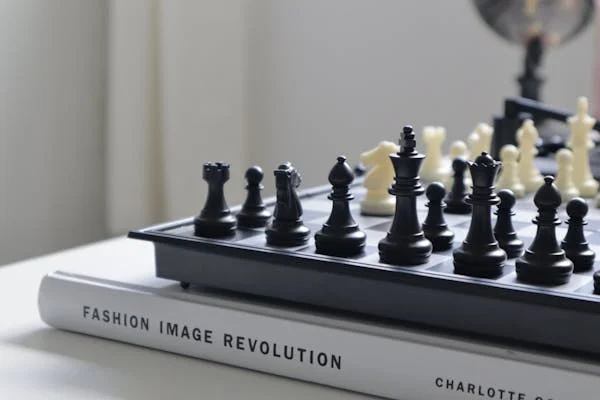Let’s keep it simple. In this guide, we will talk about the top five chess coaching academies in Al Hilal. We’ll tell you what makes each special. But most importantly, we’ll show you why Global School of Chess is the best of them all. Not just in Al Hilal, not just in Doha — but across the globe when it comes to online chess learning.
Online Chess Training
Landscape of Chess Training in Al Hilal and Why Online Chess Training is the Right Choice
In Al Hilal, Doha, chess is growing fast. Many kids want to learn it, and many parents want their kids to grow smarter with it. That’s great news! But here’s the thing — most of the chess classes around are still stuck in the past.
They meet once a week in a room. A coach talks. The students listen. There’s a board in the middle. And that’s about it. There’s no clear path. No levels. No fun homework. No one really tracks how the child is improving.
Now, imagine learning in a better way — from your own home. Where every class is planned just for you. Where you can see your progress week after week. That’s online chess training.
And that’s exactly what Global School of Chess offers. It’s not just a bunch of video calls. It’s a full journey — from learning the first move to becoming a tournament player. With caring coaches, a world-class system, and exciting games every week.
How Global School of Chess is The Best Choice When It Comes to Chess Training in Al Hilal
Here’s why Global School of Chess is different. We do things in a way no one else does.
We have a step-by-step chess curriculum. This means we don’t just teach random lessons. Every class builds on the one before. Like levels in a game. Your child knows exactly what they’re learning and where they’re headed.
Our coaches are FIDE-certified. That means they are recognized by the world’s top chess body. But more importantly, they are friendly, fun, and great with kids. They don’t just teach. They inspire.
We also have live tournaments every two weeks. Yes — your child gets to play in real games, against other kids from different countries, right from their computer. This builds courage, sportsmanship, and a true love for chess.
And here’s the best part — we offer a free trial class. You don’t have to guess if this is right for your child. You can try it, meet the coach, and see for yourself.
It’s safe, simple, and your child will thank you for it.
Offline Chess Training
In places like Al Hilal, you’ll find some chess classes being taught in schools, clubs, or small coaching centers. These are usually in person. The coach brings out a board, sets up the pieces, and begins to teach.
This way of teaching is okay for some. The kids get to see their friends. They move real pieces. And yes, a few even play in school tournaments.
But let’s ask a few questions.
Are the lessons planned?
Do they follow a set path?
Does someone check if the student really understood?
Are there weekly tournaments to help them grow?
Is every child getting the same attention?
Most of the time, the answer is “no.”
Offline coaching has been around for years. But in today’s world, where everything from school to music is taught online, chess should be too. Why? Because chess is a game of the mind — and the best training for it doesn’t need a classroom. It needs a good teacher, a smart plan, and a computer. That’s it.
Drawbacks of Offline Chess Training
Offline chess training has been the traditional way to learn for decades — and while it has some charm, it also comes with deep structural problems that limit growth, scalability, and results.
If you’re a parent deciding between offline and online learning, or a chess educator looking to evolve, understanding these challenges is critical.
Let’s break them down and offer strategic takeaways.
Inconsistent Teaching Quality
Offline chess coaching heavily depends on who is teaching, and that changes often. Many local centers don’t have standardized training for coaches. One week, a student may get a highly engaged teacher; the next, a substitute with less energy or no structured plan.
This inconsistency breaks trust and slows learning.
Strategic Business Tip:
Standardize your content delivery. Use lesson plans, teaching scripts, and visual aids to ensure any coach can deliver a high-quality session, every time. This also allows faster training and onboarding of new instructors.
Lack of Centralized Curriculum
Most offline chess academies operate in silos. Each coach teaches in their own style. There’s no centralized system tracking what’s taught, what’s learned, and what’s next.
Students jump from one topic to another with no structured path. This leads to learning fatigue and confusion.
Smart Solution for Academies:
Create a core curriculum. Divide it into levels with named themes like “Tactical Foundations” or “Positional Mastery.” Assign clear outcomes to each level. This creates a sense of progress and makes your academy feel like a professional learning institute, not just a club.
No Data, No Feedback
Parents are often left in the dark. They don’t know what their child is learning, how they’re performing, or what areas need work.
Offline classes rarely provide game records, performance stats, or skill assessments. Feedback is verbal, inconsistent, and forgotten as soon as it’s said.
Actionable Idea:
Even if you run an offline academy, digitize your progress reporting. Use tools like Google Forms, spreadsheets, or learning apps to track every student’s journey. Email monthly progress reports to parents with visuals and coach notes. This single act will differentiate you massively.
Scaling Is Nearly Impossible
In an offline model, growth means opening new centers, hiring new staff, and dealing with logistics. Each location becomes a headache.
Worse, the quality becomes harder to control as you grow.
Strategic Insight for Business Leaders:
Think digital-first. Use your best coaches to deliver online sessions globally, and use recordings to scale your knowledge without scaling your cost.
If you’re running offline now, hybridize. Offer both online and in-person formats, and use digital resources (video lessons, eBooks, progress trackers) as core parts of your program.
Best Chess Academies in Al Hilal, Doha, Qatar
Let’s now talk about the top chess coaching academies in Al Hilal. We’ll start with the best — Global School of Chess — and then look at a few others. You’ll quickly see why we stand out.
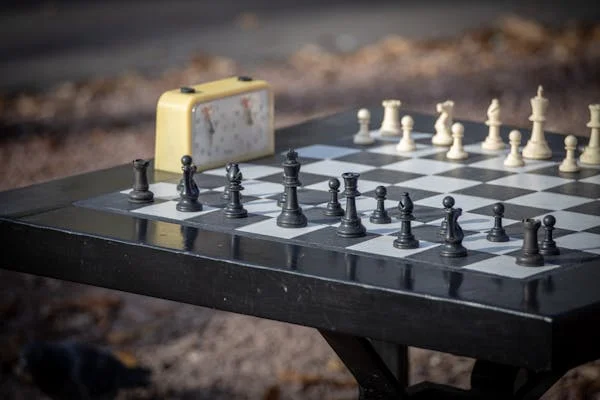
Global School of Chess
Let’s dive deep.
What Makes Us Special?
We are not just a website with chess videos. We are a real school — with real teachers, real classes, real progress, and real community.
Here’s how we do it:
Live, Interactive Classes
Each class is live. The coach is there, on screen, ready to teach and talk. Your child can ask questions, get feedback, and feel like they’re really part of something.
Personalized Coaching
No two students are the same. Some learn fast. Some need more time. Some love tactics. Some are better at endings. We see that — and teach accordingly. Your child gets attention that fits their style.
A Real Curriculum
Our chess journey goes from beginner to advanced. There are different levels, like in school. We start with the basics — how to move pieces, how to checkmate. Then we go into deep tactics, clever traps, smart openings, and powerful endgames.
Each class builds on the last. Your child won’t be guessing. They’ll always know what’s next.
Bi-Weekly Tournaments
Every two weeks, we host online tournaments. These are safe, fun, and full of learning. Your child plays against students from other countries. They learn to handle wins and losses. They grow in confidence.
FIDE-Certified Coaches
Our teachers are not just good players. They are trained coaches. They know how to teach chess, not just play it. And they love kids.
They are friendly, patient, and excited to help your child improve.
Real Progress Reports
We track everything. Every move, every game, every class. We send parents regular updates. You’ll always know how your child is doing.
Safe and Supportive Community
Kids from over nine countries study with us. It’s a global family of chess lovers. Your child will meet new friends, share games, and feel part of something big.
Easy to Start
Want to try before you decide? We offer a free trial class. No pressure. Just join a class, see the coach, and feel the magic.
Chess Academy #2: Qatar Chess Federation Training Center
The Qatar Chess Federation is the official body for chess in the country. They have a training center located in Doha where they organize local events and offer occasional coaching sessions.
However, their programs often focus more on preparing students for national-level competitions and not always on everyday learning for beginners or casual learners. While they do have access to strong coaches, their sessions are usually group-based, and not very flexible.
Classes may not follow a fixed curriculum, and since this is mostly in-person training, the pace can be hard to manage for each student. There are often fewer sessions and long gaps between lessons, which makes it hard to maintain momentum.
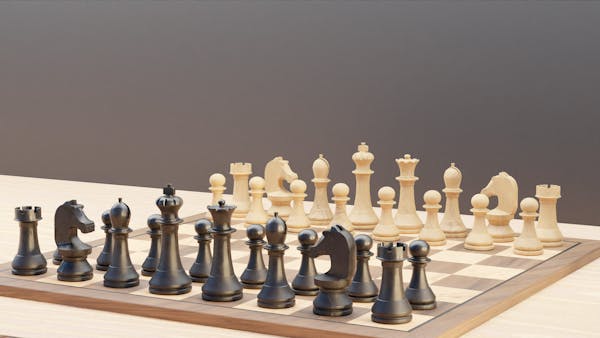
Unlike the Global School of Chess, they don’t offer regular tournaments, personalized coaching, or an ongoing structured program that adjusts to each student’s level and speed.
Chess Academy #3: Doha Chess Academy
Doha Chess Academy is a small private coaching group based in the city. They often hold weekend workshops and offer classes in community centers.
They cater mainly to younger kids and beginners, but the classes usually happen in groups and are held only once or twice a week. Since they’re small and local, the quality of the coaching depends heavily on which coach is present on a given day.
They don’t have a standard curriculum, and parents often have to rely on word-of-mouth to track progress. There’s also very little in terms of performance tracking, regular assessments, or online options.
In comparison, Global School of Chess gives families access to top-quality teaching, no matter where they live. The lessons are recorded, the feedback is documented, and every child is guided through their personalized chess journey.
Chess Academy #4: Aspire Chess Club
Aspire Chess Club is located within the Aspire Zone and is more focused on physical wellness and extracurricular enrichment. They occasionally host chess sessions as part of a broader after-school sports program.
The challenge with this club is that chess is not their main focus. Sessions are held now and then, depending on coach availability. Sometimes the chess teacher may not even be present — and when they are, the lesson is basic and not part of a full program.
If a student wants to grow in chess with proper coaching, regular practice, and a serious learning environment, this setup is not ideal. Plus, with no online access, children miss out on consistent learning during holidays or travel days.
At Global School of Chess, your child never misses a beat. Lessons happen online, every week, without interruption. Students can learn from anywhere, even on vacation.
Chess Academy #5: Private Tutors in Al Hilal
Some parents hire private chess tutors for home coaching. These are usually local players who offer sessions once or twice a week at the student’s home or through informal video calls.
While this can give some attention to the child, it lacks structure. There’s no long-term plan. No exams. No community. And since tutors vary a lot in their experience, it’s hard to know if your child is getting the best teaching.
Also, many of these tutors are not FIDE-certified. They may be good players, but they’re not trained coaches. They often teach through repetition, not through strategy or structured learning.
With Global School of Chess, you’re not guessing. Every coach is trained, certified, and part of a team. Your child is not learning alone — they are part of a growing chess family.
Why Online Chess Training is The Future
The future of learning isn’t coming. It’s already here — and chess is leading the way.
Traditional classroom-based learning still has its place. But for chess — a skill that requires mental focus, fast feedback, and lots of repetition — online training is not just a better option. It’s the ultimate one.
And the reason is simple: Online chess training solves real problems while unlocking massive possibilities.
Let’s explore this through a business lens — and then get into what parents, schools, and coaching companies can do to ride this wave.
Chess is a Cognitive Sport — Not a Physical One
Chess doesn’t need a stadium, equipment, or travel. It needs a mind and a board. And both of those work better when delivered digitally.
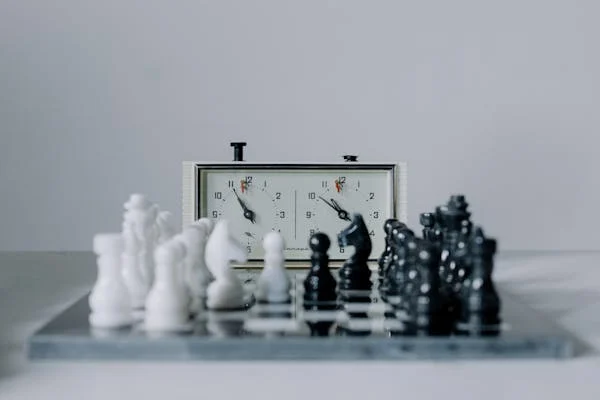
Online training means:
- Students can focus in quiet, personal spaces
- Coaches can share digital boards, puzzles, and games instantly
- Lessons can be paused, rewatched, and analyzed without delay
This format is tailor-made for a digital setting.
For business-minded academies, this reduces physical infrastructure costs and allows you to reach students across regions — even globally — without changing your cost structure.
Real-Time Data Creates Real-Time Learning
Online platforms allow coaches to track every move, every mistake, and every improvement. This is impossible to do well with over-the-board training alone.
By collecting data from games and quizzes, you can create personalized learning maps for each student.
This helps in:
- Spotting where a student is stuck
- Recommending the right exercises
- Matching students for sparring
- Rewarding progress with tailored praise
Actionable Tip for Businesses:
If you run an academy, implement a basic data dashboard. Track puzzle accuracy, match win-rates, and weekly progress. Even a simple Google Sheet updated by your coaches can offer powerful insights for parents — and make your service 10x more valuable.
Learning Anytime, Anywhere
Let’s be honest — life is busy. School, family time, sports, and homework fill up a child’s schedule fast.
Online chess training fits around life, not against it.
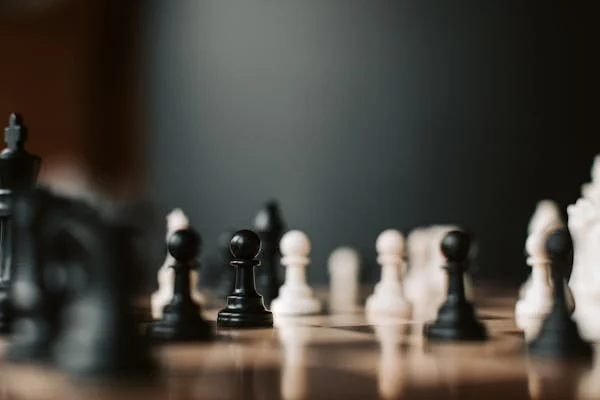
Classes can happen:
- During lunch breaks
- After school
- On holidays
- Even while traveling
This flexibility means more consistency — and more consistency means better results.
Smart academies are already offering 24/7 video libraries, AI-driven homework, and on-demand sparring rooms. These features don’t replace the coach — they enhance the student’s independence between classes.
Global Classrooms Build Global Minds
In an online class, a child in Doha might play against a peer in New York or Cape Town. They see different thinking styles. Different strengths. Different chess cultures.
This does more than build chess skill. It builds global awareness, empathy, and cross-cultural confidence.
Business Insight:
If you’re running a coaching company, start recording and celebrating “global matchups.” Use social media to share these stories. This not only builds excitement but also highlights the unique strength of your online model — you’re not local, you’re global.
How Global School of Chess Leads the Online Chess Training Landscape
Global School of Chess is not just another online class. It is a strategically built learning environment. While many academies teach chess, we build chess learners. And this difference is not by chance — it’s by design.
Here’s how we lead the way:
We Treat Chess Like a Modern, Digital School
We don’t just “go online.” We operate like a digital-first education company. Every tool, every system, every class is designed for clarity, consistency, and measurable growth.
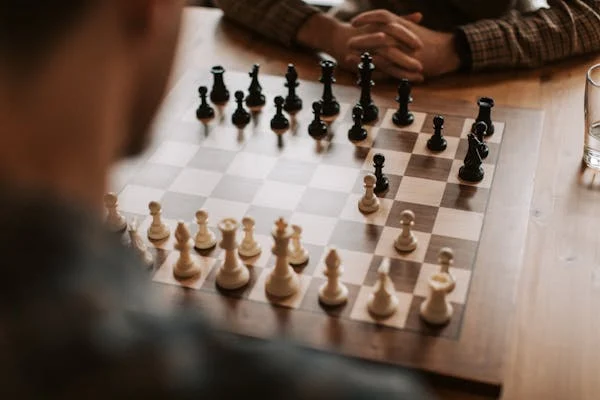
What does that mean for parents and business partners?
- A Learning Management System (LMS) with built-in lesson tracking, quizzes, and feedback loops
- Gamified rewards that boost motivation and class attendance
- AI-assisted performance insights to spot where a student needs help before they even know it
- Smart scheduling that offers flexible slots based on the student’s time zone and energy levels
These systems are not common in chess academies. But they are the standard at Global School of Chess
We Don’t Just Use Coaches – We Train Them Like Product Experts
Most chess academies hire good players and call them coaches. We go ten steps further.
We train our coaches to be world-class teachers. Each one goes through an internal teaching academy where they learn:
- How to simplify complex topics using age-appropriate language
- How to coach based on psychology, not just position
- How to spot different learning styles (visual, kinesthetic, analytical)
- How to lead classes that feel like fun hangouts, not pressure-filled drills
This creates an experience that is predictable in quality and personal in delivery.
We Think Like a Product Company, Not a Tutoring Service
This is a key mindset shift.
Global School of Chess has productized the student journey. That means every class is a part of a larger experience, like chapters in a game or episodes in a show.
- Students graduate from one level to the next with pride.
- Each level unlocks access to new puzzles, new tournaments, and even new communities.
- Parents see real data — not just “your child is doing fine.”
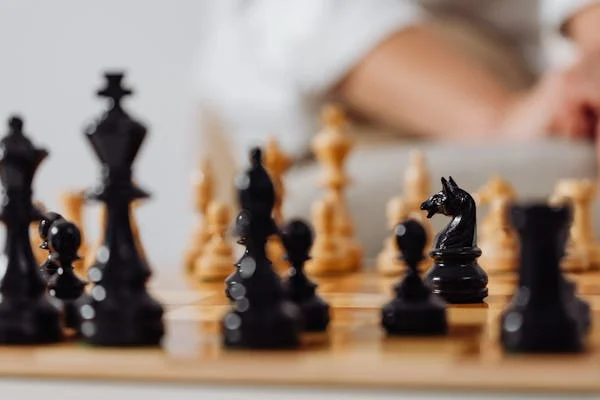
Want to adopt this strategy in your own business? Here’s how:
Actionable Advice:
- Map your user journey. Know what Week 1 looks like. What does Month 3 feel like? Build emotion and clarity into every stage.
- Design your service like a product. Add visuals, benchmarks, milestones, and rewards.
- Package learning in levels. Make the path visible, so kids know what to expect and feel motivated to climb.
Wrapping It Up
Choosing the right chess academy isn’t just about finding a place that teaches how pieces move. It’s about finding a system that builds thinkers, nurtures character, and fosters confidence — both on and off the board.

